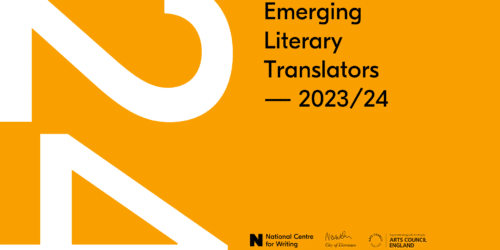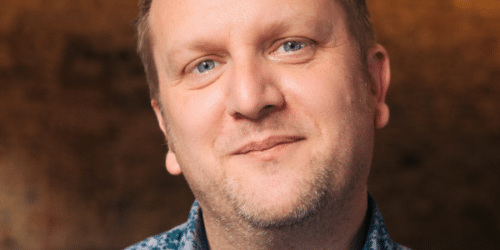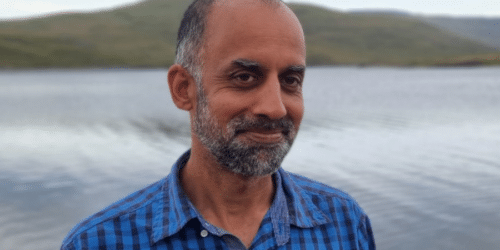
An original provocation for WCN delivered at Manchester Literature Festival on Monday 19th October, 2015.
In a world in which the internet, with its forums and discussion groups, has blurred the line between readers and writers almost to invisibility, the relationship between one and the other now seems increasingly difficult – audience participation in the creation of art is considered by many to be not only legitimate, but desirable.
Both on and offline, everyone has an opinion. And everyone has a platform from which to disseminate their opinions. Much of the time, this is a good thing. It allows a potential dialogue to exist between readers and creators. It allows readers to get in touch with the authors of work they have enjoyed. It allows writers to understand where and how they might have gone wrong, and how they can improve and grow. However, this breaking-down of barriers has also created a false sense of entitlement, giving some readers the impression that artists and writers not only inhabit a privileged world, in which there are no bills to pay and in which time is infinitely flexible, but that they also exist primarily to serve the public, to be available night and day, and to cater for the personal needs of everyone who contacts them.
This is partly due to the fact that there are so many more writers than there were fifty years ago. The rise of self-publishing, e-books and fanfiction means that far more people are now able to identify as writers. And although this is a good thing in many ways, it does also help perpetuate the idea that anyone can write a book, and that the people who actually do so are simply luckier, wealthier, or blessed with more spare time than those who do not.
The truth is, not everyone can – or should – be a writer, in the same way that not everyone can or should be an accountant, or a ballet dancer, teacher, pilot, soldier, or marathon runner. The same combination of aptitude, experience and acquired skills apply to being a writer as to any other job. We would never think of telling a doctor that we were thinking of taking up medicine when we retired. We would never expect a plumber to work for free – or a plasterer, for publicity. We would never expect to hear the word “privilege” of a teacher who has spent their career working hard to earn a living. We would never expect a lawyer who has paid to go through law school to tutor aspiring lawyers for free.
And yet, and yet, these demands are made of writers all the time. Perhaps it’s because the value of writing is such a difficult thing to quantify. Everyone dreams. Not everyone gets to dream for a living. But are we writers expecting too much? Can we keep artistic control, whilst expecting to earn a living? And, in a world in which the consumer increasingly calls the shots, can we still hope for a relationship with our readers that transcends that of mere supply and demand?
Not long ago, I was involved in the debate around an app called CleanReader, which contained an algorithm that picked out and replaced “offensive words” in e-books with “acceptable substitutes.” Thus, “breasts” becomes “chest,” “bitch” becomes “witch” and any kind of profanity is reduced to a series of American euphemisms, making nonsense of the text, its rhythms, style and meaning. Writers rallied round to combat the distribution of this app, which was swiftly withdrawn from sale. But the designers of the app, a Christian couple from Idaho, wrote to me several times to protest that readers, having paid for my books, should have the right to change my words if they disapproved of them. Readers are consumers, they said. Therefore, just as a person ordering a salad in a restaurant should have the right to ask the chef for a different dressing, readers should also have the choice to enjoy a story without being exposed to language they deem offensive, or ideas that challenge their perceptions. After all, they said; isn’t that why writers exist in the first place? Are they not there primarily to serve the needs of the public, and does it not make sense that they should take those needs into account?
An algorithm that picked out and replaced “offensive words” in e-books with “acceptable substitutes
Well, of course our readers do have a choice. And of course, we writers owe them a great deal. But a novel isn’t a salad with interchangeable ingredients. Nor is the reader entitled to order from a menu. As writers, we are always grateful when a reader chooses one of our books. We hope that they will enjoy it. And most writers value feedback and dialogue with their readers. But ultimately, a reader’s role is different to that of a writer. And a writer’s role is to try to convey a series of ideas as honestly and as well as we possibly can, with minimal interference, and most of all, without being distracted by heckling from the audience.
The fact is that the writer cannot please everyone all of the time. We shouldn’t even try – fiction, by its nature, should present a challenge. Books allow us to see the world in different ways; to experience things we might never encounter – or wish to – outside the world of fiction. Fiction is not by its nature a design for living, nor an imaginary comfort zone. Although it can be both those things, its range goes much further than comfort or escapism. Fiction is often uncomfortable; often unexpected. Most importantly, fiction is not democratic. It is, at best, a benign dictatorship, in which there can be an infinite number of followers with any number of different ideas, but only ever one leader. Like all good leaders, the writer can (and should) take advice from time to time, but where the actual work is concerned, they, and no-one else, must take final responsibility.
I love my readers. I love their enthusiasm, their willingness to engage. I enjoy our conversations on Twitter and at festivals. I love their diversity, and the fact that they all see different things in my books, according to what’s important to them, and according to what they have experienced. Without readers, writers would have no context; no audience; no voice. But that doesn’t mean we’re employees, writing books to order. We, too, have a choice. We choose what kind of relationship we want to have with our readers – whether to interact online, go to festivals, give interviews, tour abroad, teach pro bono creative writing sessions or even live in seclusion, without talking to anyone. Writers are as diverse as readers themselves, and all of them have their own way of operating. What may work for one author may be hopelessly inappropriate for another. But whatever our methods of working, the relationship between a writer and their readers should be based on mutual respect, along with a shared understanding of books, their nature and their importance.
On the internet I’ve seen a growing number of sites and blogs enumerating what readers expect of writers. Requests for increased diversity, increased awareness of current issues, requests for time and attention, gratis copies of books for review, interviews and guest blog posts – or simply demands to work faster. Readers have numerous spaces in which to discuss author behaviour, to analyse their politics, lifestyle and beliefs – sometimes, in extreme cases, to urge other readers to boycott the work of those authors whose themes are seen as too controversial, or whose ideas do not coincide with their own. Authors are expected to respect these reader spaces, whatever the nature of the discussion. To comment on a bad review – or even to be seen to notice it – is to risk being labelled an “author behaving badly”. Authors whose work is deemed to have problematic content are expected to analyse the cause – and in some cases, to apologize. There is an increasing call for trigger warnings; profanity warnings; age guidelines – in order to help the reader choose amidst a bewildering number of books. The demands on authors are numerous; often even daunting.
But do readers ever ask themselves what authors want of them? Do authors ever ask themselves what they want of their readers?
I think that for most authors, it comes down to two deceptively simple things.
The first and most prosaic is: we want to make a living. This fact is at the same time obvious, and fiercely contested, not least by many authors, who rightly see their work as something more than just a means of paying the rent.
That’s because, many authors find it hard to talk about money. It’s considered vulgar for artists to care about where the next meal is coming from. And many authors are driven to write: would probably write whether or not they had an audience; or whether they were ever published or paid, just for the joy of writing. This is at the same time their strength, and also their downfall; with the exception of a canny few who treat art as a business, writers are often reluctant to think of their work as just another product. We do not like to think of our books as units, to be bought and sold. And yet, to the publishing industry, that’s exactly what they are; the product of thousands of hours of work: of editing; copy-editing; design; marketing; proof-reading; promotion. Publishers spend most of their time thinking about the readers – the consumers of our work – but for an author, thinking about the readers (or, even worse, the pay-check) while trying to write a novel is like thinking about the drop when performing a high-wire act; dangerous, counterproductive, and likely to lead to failure.
But if, as Samuel Johnson maintains, no man but a blockhead ever wrote, except for money, there must be a lot of blockheads in the writing community. I’ll admit I’m one myself. Nevertheless, however much we may cling to society’s romanticized views of art for art’s sake, authors and illustrators need to pay their bills like everyone else.
That’s where the readers come in. Many readers seem to believe that authors are earning millions. The reality is that most authors earn rather less than the minimum wage, and when touring, attending festivals, blogging, giving interviews, holding readings, writing guest posts for bloggers, too often give their work for free. That’s why it’s important for readers to show appreciation for the work of the authors we love; firstly by buying their books (as opposed to downloading them illegally); by borrowing them from libraries (because authors are paid for borrowed books, a sum which, though small, adds up and can often provide a welcome annual windfall); and most importantly, by supporting their work; by attending festivals and readings, by writing reviews and joining in discussion groups, and generally promoting awareness of their writing, and of books in general.
Because what authors really want (and money provides this, to some extent) is validation of their work. We write because we want you to care; because we hope you’re listening – that we can make a connection, somehow; that we can prove we are not alone.
Because stories – even fairy stories – are never just entertainment. Stories are more important than that. They help us understand who we are. They teach us empathy and respect for other cultures, other ideas. They help us articulate concepts that cannot otherwise be expressed. Stories help us communicate; they help eliminate boundaries; they teach us different ways in which to see the world around us. Their value may be intangible, but it is no less real for that. And stories bring us together – readers and writers everywhere – exploring our human experience and sharing it with others.
So this is my manifesto, my promise to you, the reader. From you, I ask that you take it in good faith, respond in kind, and understand that, whatever I do, I do for the sake of something we both value – otherwise we wouldn’t be here.
1. I promise to be honest, unafraid and true; but most of all, to be true to myself – because trying to be true to anyone else is not only impossible, but the sign of a fearful writer.
2. I promise not to sell out – not even if you ask me to.
3. You may not always like what I write, but know that it has always been the best I could make it at the time.
4. Know too that sometimes I will challenge you and pull you out of your comfort zone, because this is how we learn and grow. I can’t promise you’ll always feel safe or at ease – but we’ll be uneasy together.
5. I promise to follow my story wherever it leads me, even to the darkest of places.
6. I will not limit my audience to just one group or demographic. Stories are for everyone, and everyone is welcome here.
7. I will include people of all kinds in my stories, because people are infinitely fascinating and diverse.
8. I promise that I will never flinch from trying something different and new – even if the things I try are not always successful.
9. I will never let anyone else decide what I should write, or how – not the market, my publishers, my agent, or even you, the reader. And though you sometimes try to tell me otherwise, I don’t think you really want me to.
10. I promise not to be aloof whenever you reach out to me – be that on social media or outside, in the real world. But remember that I’m human too – and some days I’m impatient, or tired, or sometimes I just run out of time.
11. I promise never to forget what I owe my readers. Without you, I’m just words on a page. Together, we make a dialogue.
12. But ultimately, you have the choice whether or not to follow me. I will open the door for you. But I will never blame you if you choose not to walk through it.
About Joanne
Joanne Harris has written fourteen novels, including Chocolat, which was made into an Oscar-nominated film. She has written two books of short stories and three cookbooks with Fran Warde. Her books are now published in over 50 countries and have won a number of British and international awards. Harris plays bass guitar in a band first formed when she was 16 and still lives in West Yorkshire, a few miles from where she grew up, with her husband and daughter.
This piece was commissioned as part of the
Writing ‘Ghostland: In Search of a Haunted Country’ In this article, writer and NCW Academy tutor Edward Parnell shares his experience writing his mixed-genre book ‘Ghostland: In Search of a Haunted Country’. 29th February 2024You may also like...







